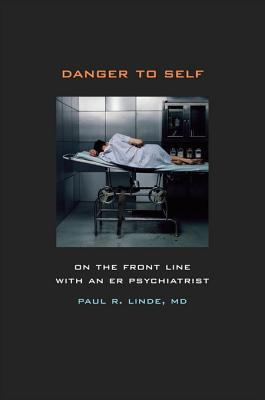
Danger to Self
On the Front Line with an ER Psychiatrist
در خط مقدم با یک روانپزشک
کتاب های مرتبط
- اطلاعات
- نقد و بررسی
- دیدگاه کاربران
نقد و بررسی

November 2, 2009
Linde (Of Spirits and Madness
), clinical professor of psychiatry at the University of California–San Francisco medical school, performs a remarkably successful balancing act by presenting both the theory and practice of emergency room psychiatry in a compelling manner. He personalizes his cases and demonstrates how essential the human dimension is in high-quality care. Using 10 fascinating case studies from his 17-year career—with patients manifesting symptoms from suicidal behavior to catatonia—Linde discusses the medical, legal, philosophical and ethical implications of treatment options. He brings the reader along as he is forced to make almost immediate diagnoses and determine courses of treatment, including incarceration, that have the potential to shape (or end) these patients' lives. It becomes abundantly clear that there are rarely simple, straightforward answers. Linde quotes a professional bromide: “he only thing that two psychiatrists can agree on is that a third one is wrong.” He's a talented writer and a compassionate doctor who understands what works best for him and his patients: “while my head works pretty well, my real strength as a physician comes from the heart.”

November 15, 2009
In this moving book, Linde (psychiatry, Univ. of California; "Of Spirits and Madness: An American Psychiatrist in Africa") relates the challenges, joys, and potential gut-wrenching errors of his work as an emergency room psychiatrist at a public hospital, who is encountering those on the margins of society in the midst of illness. Few of the many recent books on therapy, psychoactive medications, and American mental health services put human faces on their subjects as Linde does. He writes with grace, honesty, and humility about the psychiatrist's task of judging the mind and heart of another human being while remaining convinced that medicine can play a role in restoration and healing. VERDICT Those who enjoy the writings of Oliver Sacks and Sherwin B. Nuland will be enlightened by Linde's compassion and carefully wrought prose. Students of health policy, counseling, and psychology will find insight here as well.Aaron Klink, Duke Univ., Durham, NC
Copyright 2009 Library Journal, LLC Used with permission.

December 15, 2009
From Lindes perspective, a psychiatric emergency room doctor is more like a cowboy than a navel-gazing psychiatrist. Judging from the likes of some of the folks he encounters on the job, it indeed appears that such metaphors for psych ER work as wrangling, hog-tying, bull-riding, and herding are more appropriate than, say, meditating. There is also the loneliness factor. While Linde acknowledges the expertise of the San Francisco General Hospital psych ER team he works with, in the end, it is his call whether a patient be admitted for additional assessment and/or treatment. It is his decision, that is, with consideration for the latest laws governing involuntary confinement and whether or not the patients insurer will cover treatment. It is also his call whether to treat patients according to the current psychiatric trend or buck the system. Taking into consideration everything from his phlegmatic attitude toward his patients antics to the ever-evolving restrictions, political and financial, hamstringing his ability to do his job, Linde seems well suited to life as a lonesome cowboy.(Reprinted with permission of Booklist, copyright 2009, American Library Association.)

























دیدگاه کاربران